#Mark Jacobson
Explore tagged Tumblr posts
Text
Christone ‘Kingfish’ Ingram 5-17-24
youtube
YESSSSSSSSSS!!!!!
9 notes
·
View notes
Text
youtube
You shouldn't believe everything you see on the internet. Particularly when it comes to renewable energy. We started debunking some of the biggest myths about wind and solar energy – and ended up in a world of shady lobby groups and secret money streams. Come follow us down the rabbit hole.
Credits
Reporter: Malte Rohwer-Kahlmann
Video Editor: Markus Mörtz
Supervising Editor: Joanna Gottschalk, Michael Trobridge, Kiyo Dörrer
Factcheck: Kirsten Funck
Thumbnail: Em Chabridon
We're destroying our environment at an alarming rate. But it doesn't need to be this way. Our new channel Planet A explores the shift towards an eco-friendly world — and challenges our ideas about what dealing with climate change means. We look at the big and the small: What we can do and how the system needs to change. Every Friday we'll take a truly global look at how to get us out of this mess.
#PlanetA #RenewableEnergy #Disinformation
Read more:
NREL's life cycle assessment of electricity generation technologies:
https://www.nrel.gov/docs/fy21osti/80...
University of Texas snowstorm report: https://energy.utexas.edu/sites/defau...
Hidden resilience and adaptive dynamics of the global online hate ecology:
https://www.nature.com/articles/s4158...
Obstructing action: foundation funding and US climate change counter-movement organizations: https://cssn.org/wp-content/uploads/2...
The Debunking Handbook: https://www.climatechangecommunicatio...
Chapters:
00:00 Intro
00:51 What we did
01:58 Emission myths
03:55 Texas snowstorm fiasco
06:11 The misinformation cooking pot
08:34 Cui bono?
#dw planet a#solarpunk#solar energy#wind energy#clean energy#green energy#renewable energy#fossil fuels#myths#debunking#Emission myths#texas#texas snowstorm#USA#smear tactics#misinformation#Auke Hoekstra#Paulina Jaramillo#Mark Jacobson#Youtube
4 notes
·
View notes
Text

Mark Jacobson - The Universe in your Eyes, 2012
1 note
·
View note
Video
youtube
DW debunked disinformation in circulation about renewable sources of energy.
After the debunking segment, they looked into where the disinformation was coming from and who kept recirculating it. Rightwing think tanks funded by fossil fuel companies play a significant role. Of course far right politicians also add to the mix of Earth-hating crap.
It was cool to see a factchecker listed in the credits for the vid at YouTube.

Also in the credits was a link to The Debunking Handbook – written by scholars at 20 universities in 5 countries. The handbook, first written in 2011 and updated in 2020, is published in 18 languages in addition to English.
Debunking Handbook 2020
#climate change#debunking crap about renewable energy#wind turbines#solar power#renewable energy#carbon footprint#disinformation#misinformation#rightwing think tanks#rightwing media#smear campaign#fossil fuel companies#mark jacobson#auke hoekstra#paulina jaramillo#neil johnson#malte rohwer-kahlmann#debunking handbook
1 note
·
View note
Text
He's literally batting his eyelashes to ask for things! ASKFLADGHK the harlotry of it all!!

And like... as soon as Taub figures he's gotten what he wants, he puts the big sad bambi eyes away

Hear me out... I think Taub is fully aware of how pathetic he is, and has realized that being the human equivalent of a crumpled wet napkin can be an advantage if you're willing to abase yourself in order to work it in your favor.
But one must always use meow meow powers with caution!! If he's not careful (like here), he just ends up making the universe hate him even more.
#Taub the ultimate omega male chad#I mean... obviously in this specific case he was being financially cucked but yknow.. his general.. *hand wave*#I'm obviously a mark for it... hence this entire blog existing#chris taub#house md#peter jacobson
55 notes
·
View notes
Text

#peter jacobson#hugh laurie#michael sheen#alan rickman#mark gatiss#mads mikkelsen#david tennant#colin firth#robert sean leonard#wilsonteav#oldermen#older actors#i love them#rip to alan rickman (*)
37 notes
·
View notes
Text

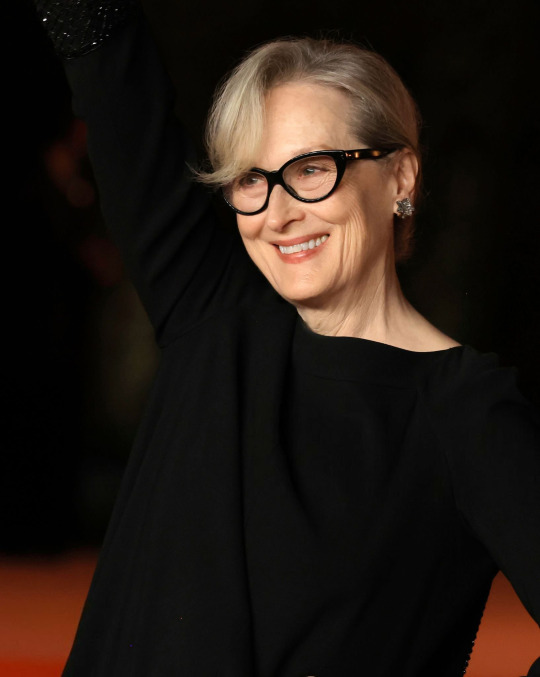

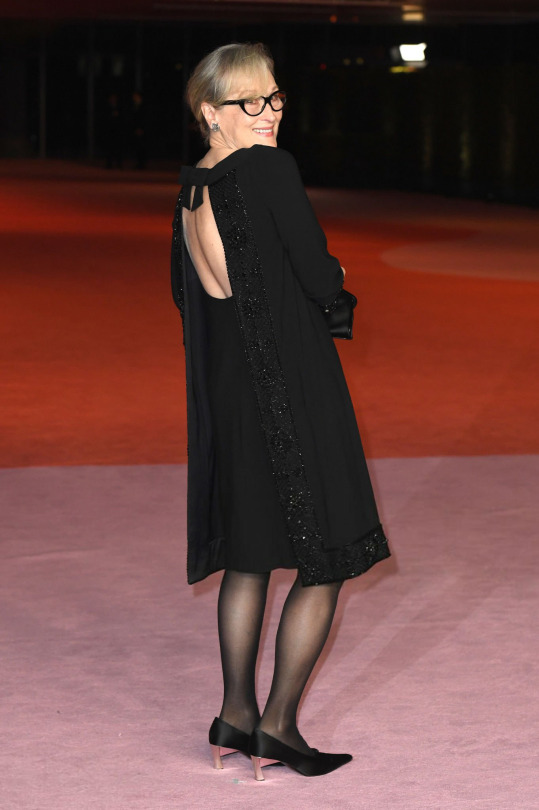

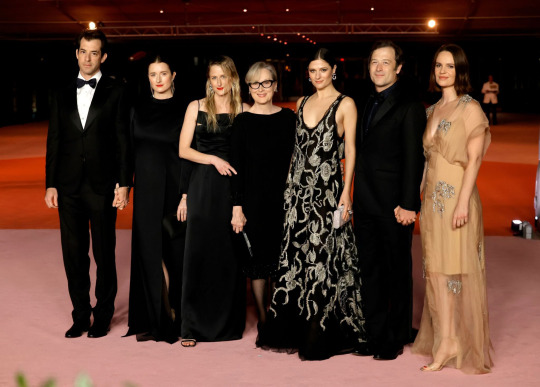

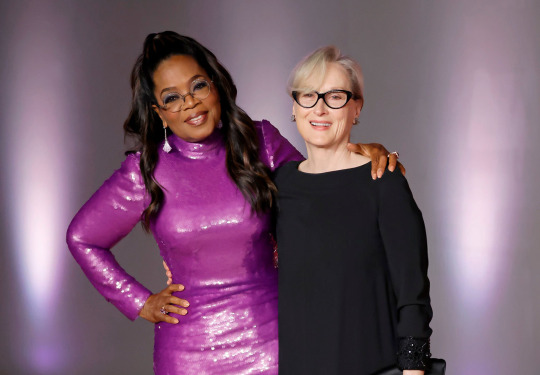

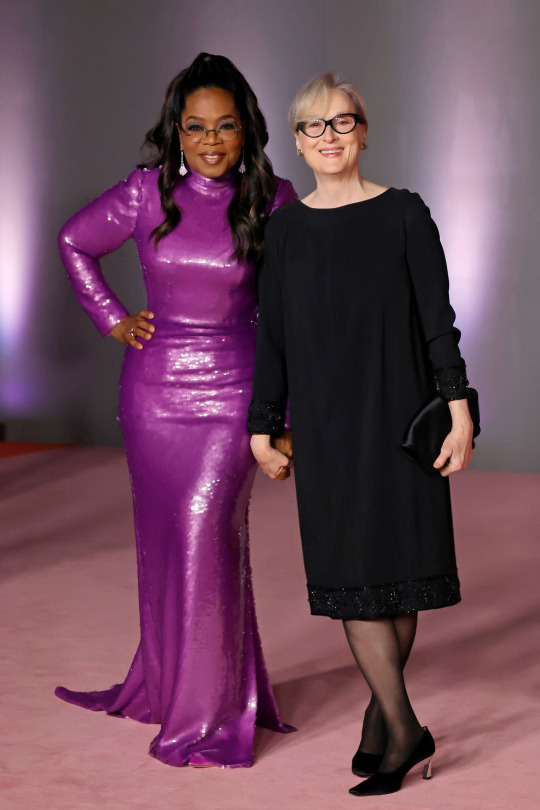
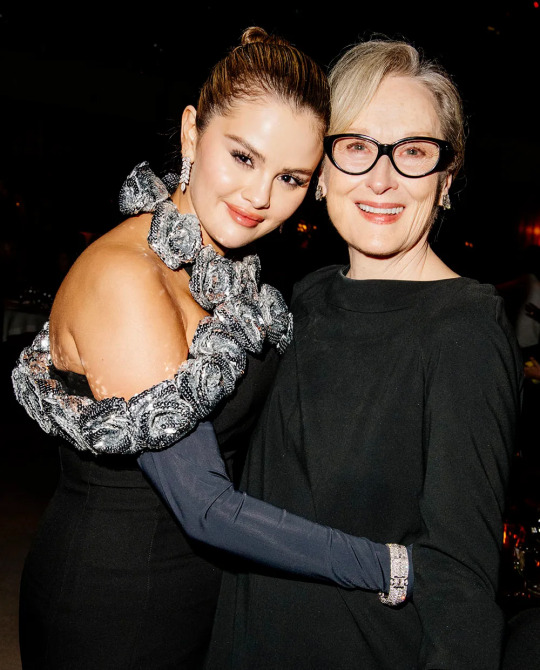
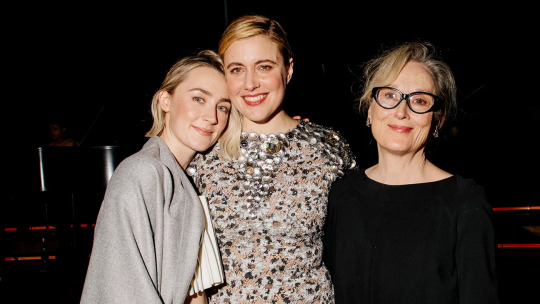
Meryl Streep attends the 3rd Annual Academy Museum Gala at the Academy Museum of Motion Pictures on December 03, 2023, in Los Angeles, California. All of her kids came as her escorts. Greta Gerwig presented Meryl with the Academy Museum Gala Icon Award, celebrating her significant global cultural impact.
#meryl streep#2023 annual academy museum gala#gala icon award#mamie gummer#grace gummer#louisa jacobson#louisa gummer#henry gummer#family#selena gomez#mark ronson#tamryn storm hawker#red carpet#los angeles#greta gerwig#saoirse ronan#oprah winfrey
42 notes
·
View notes
Text

Hello everyone!
I'm here today to introduce you to the series chosen by the winner of the last bonus article (on Instagram, @theaddictedwatcherreviews). Created by Matt Groening (The Simpsons, Futurama, The Tracy Ullman Show) and Josh Weinstein (The Simpsons, Futurama, Gravity Falls), this animated series for adults was released on Netflix in 2018 and will run until its conclusion in 2023. Made up of 50 episodes spread over three seasons, the series and its dark humour have won the hearts of audiences and critics alike. I'm talking about Disenchantment, of course!
First, as always, a short synopsis: Set in the fictional medieval kingdom of Dreamland, the series follows the story of the adventurous, rebellious and alcoholic Princess Bean, her "personal demon" Luci and her elf companion Elfo. The three of them explore Dreamland and other neighbouring lands, discovering a mythical conspiracy to which Bean is the key… And a little technical presentation: - Created by Matt Groening and Josh Weinstein - Music by Mark Mothersbaugh - Starring : Abbi Jacobson, Eric André, Nat Faxon, John DiMaggio, Tress MacNeille, Matt Berry, Maurice LaMarche, Sharon Horgan
This review is going to be a little shorter than usual, not because I didn't enjoy the show, I really did, but because I don't have that much to say about it.
GENRE
With Disenchantment, Matt Groening wanted to create an adventure in a medieval fantasy world that would allow him to move away from the very distinctive universes he had previously created with The Simpsons - set in our current world, but more centred on the United States in the 1990s - and Futurama - set in a futuristic world. So he mixed several genres in his writing, creating a unique blend that differentiates it from other animated series:
Fantasy: The main setting of the series is a medieval fantasy world called Dreamland, which includes magical creatures (elves, demons, mermaids), spells and mythical elements. The fantasy aspects allow for a creative construction of the world and the plot.

Humour: The humorous tone of the series is a key element, ranging from slapstick to dark comedy and satire. It often parodies fantasy tropes and medieval settings, using both puns and visual gags.
Adventure: Characters often embark on quests and journeys, exploring new lands and facing various challenges. These adventures drive the plot and character development.

Drama: As the series progresses, it incorporates more dramatic elements, exploring deeper themes and emotional intrigue. The relationships between the characters and their personal development become increasingly important and, by giving them depth, help to move the plot forward.
Satire: The show often satirises modern issues through its fantasy lens, criticising social norms, politics and human nature.
Science Fiction: While primarily a fantasy series, the show sometimes incorporates science fiction elements, especially in later seasons, with time travel and advanced technology in a medieval setting.

Mystery: Revelations about characters' pasts add an element of mystery to the show and help move the plot forward. Conspiracy theories and hidden truths are ubiquitous in the story.
Coming of age: Bean's journey of self-discovery and growth gives the show a very human dimension that viewers can relate to. This aspect becomes more important as the show progresses.
Adult Animation: While not as explicit as other adult animated series, Disenchantment deals with mature themes and contains mature content, both in its humour and in the themes of the story.
The mix of these genres allows Disenchantment to appeal to a wide range of viewers and to explore different storytelling styles. It differs from Matt Groening's previous work in that it relies more heavily on serialised storytelling, running throughout the series rather than episodically. It also relies more heavily on fantasy elements, while still retaining its signature humorous style.
While the balance between comedy and more serious elements is sometimes uneven, the show's ability to move from light comedy to more dramatic moments has often been seen as both a strength and a challenge in maintaining a consistent tone.
HUMOR
The humour in Disenchantment is multi-faceted, drawing on a variety of comedic styles. It uses sarcasm and wit, particularly in Luci's dialogue and Bean's quips, which are often used to subvert expectations or comment on absurd situations. Comedy derived from the personality traits and quirks of the main characters is also very present. Elfo's naivety, Luci's cynicism and Bean's rebelliousness are frequent sources of humour. Anachronisms refer to modern sensibilities and, when used in a medieval fantasy setting, allow humour to be created through the contrast between contemporary ideas and the period in which the series is set. The background jokes and visual gags are reminiscent of Matt Groening's other work and help to break up a dramatic situation. There are also small rewards for the attentive viewer in the form of hidden jokes and Easter eggs from Matt Groening's other works, as well as other pop culture creations. While the pop culture references are present, some viewers felt that they were not as clever or numerous as in Futurama, which had set the bar very high for this type of humour in animated series.
Dark humour, when used wisely, often allows morbid subjects or unfortunate events to be dealt with in a lighter way. It helps to create a balance between fantastical elements and a more adult tone, to counterbalance the tragic side of certain events, but also the very absurd touch of certain jokes. Indeed, the series exploits the bizarre and illogical aspects of its fantasy setting for comedic purposes, exaggerating the absurdity of these aspects and often taking situations to extreme or unexpected conclusions in order to make people laugh. However, the combination of dark humour and lighter jokes is sometimes awkward and creates moments of imbalance that can disrupt the viewer's appreciation.
The show sometimes breaks the fourth wall or makes self-referential jokes about the conventions of storytelling to remind the viewer of their status as witnesses and the show of its status as entertainment. Matt Groening does not hesitate to poke fun at fantasy tropes and medieval settings. It is often a social commentary on contemporary issues - such as LGBT acceptance or feminism - through the prism of fantasy. Its clever use of language and puns, particularly on proper names, are among the many devices used to construct the show's humour. It often incorporates multi-layered jokes and running gags that develop over the course of episodes or seasons. These help to create a sense of continuity and reward long-time viewers. Finally, the show also uses slapstick, which is a style of humour that goes beyond the boundaries of normal physical comedy, often involving the misfortune or clumsiness of the characters.
Overall, Disenchantment's humour is more mature and complex than typical animated films and series, while still maintaining broad appeal through its blend of comedy and humour. The series has been praised for its clever writing and ability to blend different comedic styles. However, other critics have noted that the humour is very different from that of Futurama and The Simpsons and did not appeal to them. The balance between humour and more serious, plot-driven elements has also been debated, with some feeling that the comedy has sometimes taken a back seat to the storytelling in later seasons.
In addition, some have felt that many of the jokes are too obvious or rely on tired tropes, especially when compared to the innovative humour of Futurama or the early seasons of The Simpsons. Although anachronistic humour is a staple of the show, some felt that it was overused or not always executed effectively.
After that, it should be noted that humour is subjective, and that the qualities and flaws listed above are only what I have been able to notice, but also feedback I have been able to get from people who have seen the series, and of course everyone is free to have a different opinion on any of the points mentioned.
THE ANIMATION STYLE
The animation style of Disenchantment is very recognisable and shares some similarities with Matt Groening's other works, while also having its own elements. Indeed, as in Futurama or The Simpsons, the characters have some similar physical characteristics, such as bulging eyes or a prominent upper jaw. However, the characters are more detailed and varied, with a greater variety of body types and characteristics. The characters' facial expressions are also more varied and nuanced than in The Simpsons and Futurama. This allows for more complex emotions to be conveyed through smoother animation, and also favours the show's most dramatic moments. Clothing and accessories are also more complex, in keeping with the fantasy setting.
Speaking of fantasy, the show uses a rich and vibrant colour palette that is more suited to the setting. It has a wider range of colours than The Simpsons, with more subtle shading and lighting effects. It also incorporates magical effects and fantasy elements not found in Matt Groening's other shows, using digital effects to enhance traditional animation techniques. The show also uses more advanced lighting techniques to create a different mood and atmosphere from Futurama and The Simpsons. The use of shadows and colour gradients helps to enhance the fantasy setting. The 16:9 widescreen backgrounds allow for very detailed visuals that also help to bring the medieval fantasy setting to life in a more elaborate and varied way than in Matt Groening's previous works. They reflect a more varied palette of locations and a better incorporation of magical elements. They also often contain jokes or hidden references.

On a more technical level, the series takes advantage of its fantasy setting to create imaginative and visually striking sequences. As with Futurama, the animation of the series was entrusted to Rough Draft Studios, and there are many similarities between the two work. It is further distinguished from The Simpsons, which is animated by various animation studios, including Rough Draft. The action scenes are more dynamic and elaborate than in Matt Groening's previous works. Although primarily in 2D, the series occasionally incorporates 3D elements for specific effects or scenes, and maintains a consistent style throughout the series, with gradual improvements over time.
The animation style of Disenchantment has been praised for its attention to detail, particularly in the background and character designs. The style effectively supports the comedic and more serious aspects of the series, allowing for expressive character performances and immersive world-building. Disenchantment's animation can also be seen as an evolution of Matt Groening's style, adapted to modern techniques and a fantastical setting.
CHARACTER DEVELOPMENT
The character development in Disenchantment is generally considered to be one of the strengths of the series, especially as it progressed.
I won't go into the development of every single character, as that would take far too long, but I will at least touch on the work done on the three central characters of the series.
[SLIGHT SPOILERS]
First, Bean - whose full name is Tiabeanie Mariabeanie de la Rochambeau Grunkwitz - begins the series as a rebellious and alcoholic princess, running away from her responsibilities and desperate for freedom. Her impulsiveness and ability to make bad choices are emphasised in order to exacerbate the character's future development. In fact, through the adventures she will have and the discoveries she will make, she will become a more responsible and self-aware character.

Her friendships with Elfo and Luci help her to develop emotionally, learn loyalty and trust, and encourage her to excel. In addition, Bean's complicated relationships with her father, King Zøg, and her mother, Queen Dagmar, are crucial points in her development. Between Zøg's expectations of his princess daughter and heir, and Dagmar's manipulations, she is led to a more nuanced understanding of family. Her romantic experiences contribute to her character development, as they also help her to understand herself better and influence her decisions. She is faced with many ethical dilemmas, and through all these experiences she shows an evolution in her values, but also in her strength of character. Still as stubborn as ever, she ends up assuming her share of responsibilities and her role as leader but always on her own terms. Her struggles with identity, relationships, and magical abilities are relatable to the audience, and the quality of the performance by Abbi Jacobson—who voices Bean—highlights the character's ambivalence, fragility, strengths, and evolution. Bean's evolution is one of the show's strong points, thanks to the depth that has been given to her character over time. Her transformation from a one-dimensional party girl to a complex, multifaceted character with real struggles and triumphs is often cited as one of the show's strong points.
Then, the development of Luci -Lucifer- is quite interesting and unique in its kind because of its demonic nature. He is presented to us as Bean's personal demon sent to corrupt her and cause chaos and is therefore portrayed as a sarcastic and Machiavellian character regularly encouraging Bean in her worst ways.

However, as the series progresses and his relationship with Bean and Elfo develops, Luci's character begins to question his original goal and his loyalty to his demon master in order to gain his independence. This internal conflict allows us to show that the character is able to develop his moral sense beyond what he initially expected. Although he remains a demon throughout the series, it is interesting to see this ambiguity settle in him, because through his journey the viewer can see that there can be good and bad in everyone. Thanks to his sarcasm and this evolution, Luci is one of the audience's favourite characters, and Eric André's interpretation perfectly underlines this duality of comic and sentimental character. In fact, the evolution of his morals and his attachment to Bean and Elfo over the last few seasons is a perfect illustration of the journey he has taken. However, I find that in the last season the character seems more erased, more absent, and that's a shame for a character who has had one of the biggest developments in the series.
Finally, the character of Elfo! Elfo's development over the course of Disenchantment has received mixed reactions, as some viewers initially found Elfo to be one-dimensional and too naive, but his constant optimism and innocence are endearing and potentially annoying. The exploration of his origins and half-elf heritage added depth to his character and provided a context for his behaviour and outlook. Over time, Elfo has shown more complexity, dealing with issues of identity and belonging. As such, his gradual loss of innocence and assertiveness has made the character less polished and therefore more interesting. At the beginning of the series, Elfo's role was mainly to be a source of humour, but also a receptacle for Bean's doubts. But as the story progressed and he developed, his naivety gave way to more nuanced comedic moments, and while it was interesting to see him develop, the lighter side he brought was sometimes lacking. His relationship with Bean also contributed greatly to the character's maturity.

Indeed, Elfo's unrequited love for Bean was a troubling aspect of the story for me, as it came out of nowhere and seemed a little forced at first, but I am aware that some found it endearing and were able to relate to it. Personally, I found it mostly a repetitive motif and one that hindered his personal development. However, his relationships with Bean and Luci were crucial to his development and helped to highlight his growth. Overall, Elfo's journey of self-discovery, particularly regarding his heritage and place in the world, was seen as an important aspect of his arc. As he faces more complex situations, his responses to moral dilemmas add depth to his character and help to show that he has matured over the course of the series. He becomes more than just a naive sidekick, but at times his development can feel overshadowed by Bean's 'bigger' arc.
[END OF SPOILERS]

Other characters such as King Zøg, Queen Dagmar or Oona have had very interesting developments that deserve to be developed, but I don't want to say too much about them so as not to completely spoil the story for those who want to watch the series. I would just like to point out that even the secondary characters have had the right to develop their personalities and their stories, and that this has made them endearing and important characters for the development of the story.

This is a credit to the show, which has been praised for allowing characters to change and grow over time, unlike the more static characters in most of Matt Groening's work. However, there have been times during the series when character development has been sacrificed to the needs of the plot, to the detriment of certain characters' development. Nevertheless, the exploration of family dynamics, particularly Bean's relationship with her parents, is one of the show's greatest strengths.
THE END OF THE SERIES
I will not, of course, recount the events leading up to the end of the series, but I would like to briefly share my feelings.
The second part of the fourth season, released on Netflix in 2023, concludes the series. Although it attempts to wrap up most of the major plots and character arcs, I felt that some stories were rushed, trying to wrap up too many storylines in too short a time. Despite the attempts at closure, some plot points or mysteries were left unresolved or explained in a shaky way.
Nevertheless, the development of the characters and the emotional impact of the resolution of some of their plots resonated with me, particularly in relation to friendship, intra-family relationships and mental health.
The balance between humour and more serious plot elements in the finale seems rather uneven, but the fact remains that these two key elements of the series remain present throughout the story and contribute to the very specific construction of Matt Groening's works.
Although the main story has come to an end - whatever one thinks of the ending - some aspects of the ending have left room for possible future stories. As is often the case with series endings, opinions will vary greatly depending on the viewer's expectations, but for me it left me a little hungry for more, with unanswered questions and an ending that felt a little forced on the audience.
MUSIC
Disenchantment's soundtrack plays an important role in establishing the atmosphere of the series and enhancing its narrative. Composed by Mark Mothersbaugh (The Rugrats, The LEGO Movie), the soundtrack blends medieval fantasy-inspired music with more contemporary elements. It uses a mix of orchestral arrangements and electronic components, reflecting the series' blend of traditional fantasy and modern humour. It also helps to bridge the gap between the show's medieval fantasy setting and humour and more contemporary themes.
The opening theme is a medieval-style instrumental that sets the tone for the fantasy setting, but also incorporates elements that evoke both the fantasy and darker aspects of the series.
Several characters are associated with musical motifs that recur throughout the series, often evolving with the characters to reflect their development.
The music shifts effectively from comical to adventurous to darker tones to match the different moods of the series. Occasionally, there is music in the world, such as minstrel songs or tavern shows, which adds to the medieval atmosphere. Although not a musical series, Disenchantment occasionally features original songs to add to the narrative or humour.
CONCLUSION
There has been no official announcement regarding the confirmation of a sequel or spin-off to Disenchantment to address the open-ended aspects of the ending. However, Matt Groening and the show's creators have not publicly ruled out the possibility of revisiting the world, without providing further information about the possibility. Netflix, which streamed the series, has also not made any statement regarding the continuation of the series or ordering a sequel, despite the demand from fans of the series.
As for me, although the unanswered questions leave me with a slightly bitter taste, I would not want to see a new season of Disenchantment see the light of day for fear that, like too many shows, it would drag out the original story and make the series lose all the effectiveness that lay in its original writing. Why not, on the other hand, a medium-length animated film to tie up the loose ends without starting new ones that would not necessarily be needed.
All in all, I really enjoyed this series, which brings a bit of madness and freshness to our everyday lives, while at the same time dealing with themes that a large part of the audience can relate to, and also using humour to talk about social issues such as feminism and ecology.
It seems to me that I have covered everything I could possibly say about Matt Groening and Josh Weinstein's Disenchantment, so I will leave you for now and return to my viewing!
For those of you who are going to try to watch it, or who have watched it, do not hesitate to tell me what you thought of it!
As always, you can follow my adventures and the next polls on Instagram (@theaddictedwatcherreviews). I am always open to feedback and suggestions, so feel free to drop me a line if you like!
Have a good week, good viewing and see you soon!
Eli
#tv show#review#disenchantment#animation#matt groening#josh weinstein#Abbi Jacobson#Eric André#Nat Faxon#John DiMaggio#Tress MacNeille#Matt Berry#Maurice LaMarche#Sharon Horgan#music#mark mothersbaugh#fantasy
2 notes
·
View notes
Link
From the July 4, 2023 takedown:
With a No Labels candidacy unlikely to win electoral votes, then, or even to meaningfully affect public discussion of the organization’s stated values, speculation has naturally arisen about what—or whose—purpose such a campaign would really serve. Because the group is a nonprofit that doesn’t have to identify its donors, this speculation can have a sinister edge. Cui bono from all this “dark money”?
...
The Democrats favored by No Labels donors have a common history of resisting proposals for social spending and efforts to raise taxes or regulate the financial industry....
...
So what’s the deal with No Labels? Here’s a theory: Its leaders and guiding spirits—the Jacobsons, Penns, and Liebermans—are locked in a mutually delusional feedback loop with their donors in which everyone convinces themselves that a random politician whose main attribute is being objectionable to both parties could become president. They have a faith-like conviction that both sides must always be doing something wrong, a hunger for relevance, and enough confidence to keep going when everyone tells them they’re making a mistake. That (and $70 million) is more than enough to spoil an election with or without having a clear goal in mind. “What is No Labels’ plan for 2024?” might be the wrong question; a better one might be “Does No Labels ever have a plan at all?”
14 notes
·
View notes
Text
Smile 2 (18): A Sequel That Well Surpasses the Original.
One Mann's Movies Film Review of "Smile 2". One of the best gory horror's of the year in my book. Naomi Scott is superb. 4/5.
A One Mann’s Movies review of “Smile 2” (2024). “Smile 2” is the sequel to the 2022 sleeper-hit from Parker Finn. That was a novel concept and delivered pretty well on its premise. But it wasn’t half as much of a blast as “Smile 2” turned out to be! Bob the Movie Man Rating: “Smile 2” Plot Summary: Skye Riley (Naomi Scott) is an international superstar about to embark on a sold-out concert…
#bob-the-movie-man#bobthemovieman#Cinema#Cristobal Tapia de Veer#Dylan Gelula#Film#film review#Formosa Group#Kyle Gallner#Lukas Gage#M. Night Shyamalan#Mark Kermode#Miles Gutierrez-Riley#Movie#Movie Review#Naomi Scott#One Man&039;s Movies#One Mann&039;s Movies#onemannsmovies#onemansmovies#Parker Finn#Peter Jacobson#Raúl Castillo#Ray Nicholson#Review#Rosemarie DeWitt#Saleka Shyamalan#Simon Mayo#Smile#Sosie Bacon
0 notes
Text
Oh, Charlie!
"Oh, Charlie!" a review of 'Charlie and the Chocolate Factory', a ballet by Mario Gaglione at the Joburg Theatre until 13 October 2024.
SWEETS that can blow your mind! Ryoko Yagyu is Violet Beauregarde in the ballet, Charlie and the Chocolate Factory which is currently enjoying its world premiere at the Joburg Theatre, until 13 October 2024. Photograph by Lauge Sorenson. WHAT WOULD YOU do if you were lucky enough find one of five golden tickets that will offer you access to the heart of the best made chocolate in all the land?…
#Albertus Dreyer#andrew botha#Andrew Gilder#Anya Carstens#Braamfontein#Bruno Miranda#Chad Hendricks#Charlie and the Chocolate Factory#Chiara Szabo#Christopher Montague#Cristina Nakos#Darragh Hourrides#Di Sparks#Fiona Budd#Glynnis Higgins#Ivan Domiciano#Jayden Samuels#Joburg Ballet#Joburg Theatre#Johannesburg Philharmonic#Lauge Sorenson#Mari Robinson#Mario Gaglione#Mark Cheyne#Miguel Franco-Green#Revil Yon#Rhulani Moloi#Roald Dahl#Ryoko Yagyu#Savannah Jacobson
0 notes
Text

Slacker, Richard Linklater (1990)
#Richard Linklater#Mark James#Tommy Pallotta#Jerry Delony#Brian Crockett#Scott Marcus#Stella Weir#Teresa Taylor#Mark Harris#Deborah Pastor#Louis Black#Robert Pierson#Sarah Harmon#John Slate#Charles Gunning#Mark Quirk#Kim Krizan#Annick Souhami#Regina Garza#Stephen Jacobson#Athina Rachel Tsangari#Joseph Jones#Lee Daniel#Scott Rhodes#1990
1 note
·
View note
Text
"Big batteries are muscling gas out of California’s electricity mix, according to data collated by Stanford University Professor Mark Z. Jacobson.
In the 100 days to June 14, California saw a 45% reduction in gas-fired power output, relative to the same period a year before.
The decline was mostly thanks to a surge in battery installations in recent months. The state now has 10.4 gigawatts (GW) of battery storage capacity — a technology it says is key to achieving a 100% clean electricity system by 2045.

Batteries are used to store energy from renewable sources like solar during the day so that it can be deployed in the evening, when solar generation tapers off and demand for power surges. These facilities are increasingly challenging the role of gas plants in meeting peak demand.
On the evening of June 10, for example, big batteries injected a record 7.7GW of instantaneous power into California’s grid. They accounted for a quarter of total electricity supply at that point.
And according to data from GridStatus, gas generation on an average April day in California hit a seven-year low, reversing an earlier trend that had been fuelled by rising electricity demand.
On 89 of the 100 days to June 14, there were periods where renewables generated more than enough electricity to cover all of California’s needs. This excess energy creates a strong business case for batteries, which can charge up when prices are low and discharge when prices are high.
Compared to a year before, utility-scale solar output was up 32% over the 100-day period, wind generation grew 10%, and battery output doubled, Jacobson says. Meanwhile, demand for electricity from the grid was down 3% due to new rooftop solar installations."
-via The Progress Playbook, June 20, 2024
#california#united states#gavin newsom#governor newsom#democrats#voting matters#batteries#renewables#renewable energy#clean energy#fossil fuels#natural gas#climate action#wind power#solar power#good news#hope
435 notes
·
View notes
Note
Do you have any thoughts on the intersection of disability and sexuality? I made a disabled OC who was designed as a tongue in cheek subversion of the "can't have sexual attraction as a disabled person" tropes-- she's pansexual and something of a disaster queer, by her own admission. Her type is guys with messy hair who are a little bit dorky, fem girls who are sweet and have long hair, and... pretty much a good portion of the cast at some point. But I wanted to get some more opinions, since I (known disabled person) am probably going to write a lot more disabled characters.
Hey!
In my opinion, there's a huge problem with disabled characters being completely desexualized, and it happens a lot. Especially for severely and/or developmentally disabled people. If you're interested in some real-life examples, I can't recommend Crip Camp (2020) enough. There's a fragment specifically about that intersectionality around the 50-minute mark by Denise Sherer Jacobson.
However, there's also the other side of sexuality and disability, which is the fetishization. We talked about fetishization on this blog before, but it wasn't literal (at least most of the time). There are some specific disabilities that are more affected by this, the prime example being little people - or, people with dwarfism - which often get oversexualized and objectified. Here's a very relevant post about this by @a-little-revolution. You can see this on tumblr too, some tags (#amputee comes to mind) are basically unusable because it's all able-bodied fetishists. When doing your research I'd just urge you to avoid this kind of crowd for your own well-being.
In general, make sure that the narrative doesn't frame her exploring her sexuality as something "taboo" or "freaky". It could be good to have abled characters who are similar to her in that as well.
I think that your perspective as a disabled person will help you avoid many of the problems that could pop up. Remember to give your character(s) agency when it comes to their sexuality and if you decide to have multiple disabled characters, try to give them different views/experiences of it.
I hope this helps,
mod Sasza
130 notes
·
View notes
Text
"More than 99.7 per cent of electricity in Albania, Bhutan, Ethiopia, Iceland, Nepal, Paraguay and the Democratic Republic of Congo comes from geothermal, hydro, solar or wind power.
Norway came close with 98.38 per cent of its energy from wind, water or solar, according to the data compiled by Stanford University Professor Mark Jacobson.
Another 40 countries got at least half of their electricity from renewables in 2021 and 2022 including 11 in Europe. Others, like Germany or Portugal, are capable of running on 100 per cent wind, water and solar for short amounts of time."
53 notes
·
View notes
